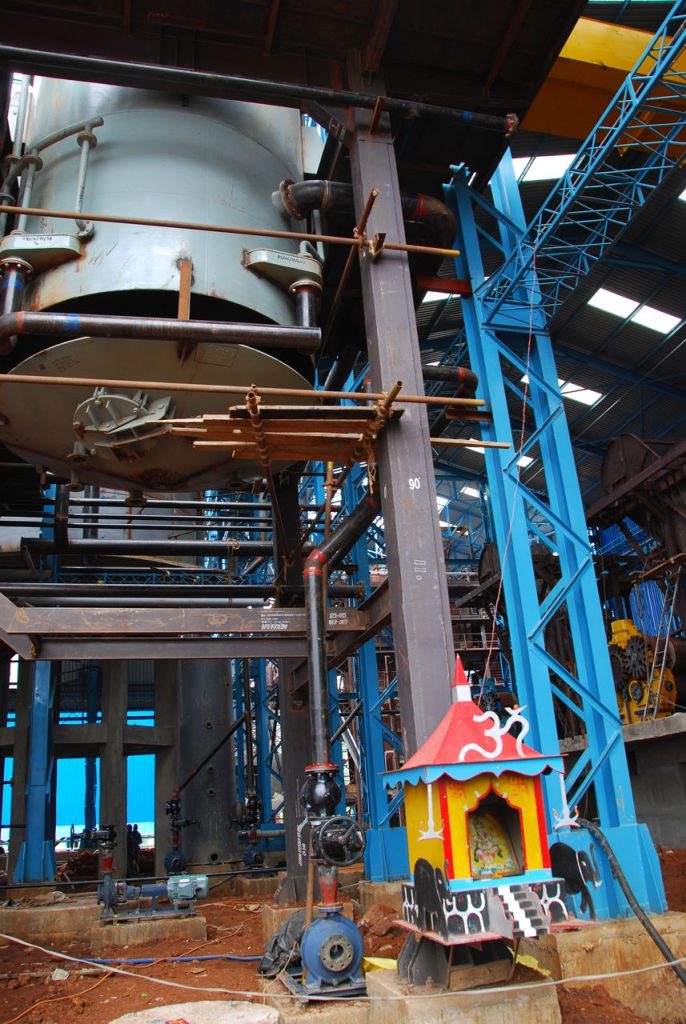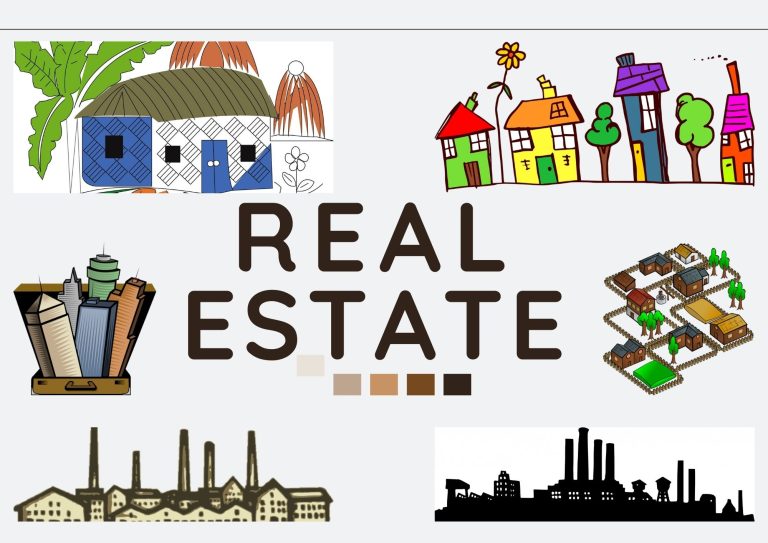Real estate is property consisting of land and any permanent structures, like a building, or resources attached to the land, whether beneath it, above it, natural or man-made, such as crops, wild animals, water, or minerals.
How does the real estate industry work?
The real estate business uses properties as an investment medium to profit through the purchase, ownership, construction, development, renovation, lease, management, and sale of real estate property. You can invest in this industry with an aim of increasing the value of the property through various methods, so that can generate higher returns.
So, why invest in real estate?
- The real estate business is a highly profitable and easy investment option. This form of investment is beneficial for you as a means of passive income. The benefits are many including the ones listed below.
- You can easily derive a monthly or yearly income from rents since you buy the property and rent it out.
- Capital appreciation is when you buy a property and hold onto it until its value appreciates, then sell it for a profit.
- Real estate development is a term used to describe a process of enhancing or adding more value to an existing property. You can developing it by renovating it or building new structures, then lease it out or sell it to generate a profit.
- Real estate flipping where you acquire an asset at a lower price, improving it and then reselling it at a higher price in order to make a profit.
Types of real estate
Real estate comes in several forms, and depending on the particular type of real estate in question, there may be a wide range of rules pertaining to the buying and using of the property.
1. Land
A parcel of land that is not used currently may be reserved for use later on or may be leased or let out for use for raising livestock, for timber production or for agriculture or similar uses. Land is a consistently strategic investment because it continues to increase in value over time even if it is not currently generating income.

2. Residential Real Estate
They are the lands that have construction and development and are in fact inhabited by people. It covers single residences or one-unit structures, right up to multiple unit residential buildings like apartments (structures containing more than one dwelling unit on the same lot). Many people own the home they live in. Others may lease homes from the owner of the real estate under a rental agreement. Different categories of residential real estate include residential homes, townhouses, vacation homes among others.
Owning and occupying your own home won’t generate an income. However, your home increases in value over time. Therefore, it develops significant equity, giving you a valuable asset over time. This equity can be used in a number of ways to help with other financial goals. For example, you can take out a loan against it or sell it. You can also leave it behind for someone you love.

3. Commercial Real Estate
This is a property established for the purpose of earning revenue through business or professional activity. Usually, the real estate owner may own and run a business on the property themselves or allow other businesses to lease property on the land.
Office spaces and retail spaces like shopping centers and malls are examples of commercial real estate. They generate more rental income than residential properties do. They also call for understanding of the market in addition to addressing the needs of the business tenants.

City centre Nairobi Nairobi, Kenya. Source: Flickr
4. Industrial real estate
This property is for industrial and manufacturing uses. People use these buildings for research, production, and storage or distribution. Farms, mines, and land containing warehouses, factories, and plants are examples of industrial real estate. This property is also set up to make a profit.

Factors that Define the Value and Demand of Property
These characteristics help determine the worth and marketability potential of a property. It also acts as sources of reference to the people within the real estate sector.
1. Scarcity
Land is a finite resource. The supply of land in a given location or with a given quality is generally limited. Hence, demand for land is always greater than the amount of land available which pushes the prices up. This makes real estate a valuable and an attractive investment. Real estate investors and developers have to look for the best ways of use of the available land while also satisfying their clients and customers needs and market demand.
2. Immobility
Real estate like land is also referred to as fixed property. It is immovable. When you put up or develop a structure, it is permanent. You cannot move it from one location to another. This immobility creates a sense of stability and permanence. Hence, many investors as well as tenants are attracted to it.
However, immobility is a disadvantage in this regard. It makes it difficult to sell or dispose of a property within a short time. This means that real estate investments are not as liquid as other types of investments.
3. Indestructibility
Real estate is a physical asset that is fairly resistant to destruction. The land itself cannot be destroyed. Although the structures and enhancements made on the actual land may need repairs or maintenance. For this reason, real estate is a highly valuable and stable commodity.
4. Uniqueness
Every property has some properties that distinguish it and make it different from others. This nature means that every property will always have its strengths and weaknesses that could be exploited to suit the needs of the buyer(s) or tenant(s). However, this characteristic poses quite a problem when trying to make comparisons of various properties and even their overall value accurately.
5. Investment Permanence
This characteristic implies that real estate investments are long term, relatively stable and has minimum level of volatility.
- The capital used for the improvement of a property can be a large and long term fixed investment.
- The return on such investments tends to be long-term and relatively stable.
- It generates constant income in the form of rent or lease.
- They usually do not get affected by economic shocks, market recessions and other factors that may affect stocks or bonds.
6. Improvements
You, as a property owner, have many choices on what the land or structures on the property can be changed or upgraded into. These changes enhance its value and utility thus making it more appealing to prospective buyers or tenants. The Improvements may include minor repairs like fixing of a broken door to extensive remodeling or even construction of new structures. This effect (which increases the value of a property) is also felt in the surrounding area.
7. Location
The location of a property determines its market value and attractiveness. It also has a vital function in the success of commercial and industrial premises. Some places are considered better than others. Therefore, property values will also vary from one region to another.
For instance, if your properties are situated in prime areas such as near schools or towns, they are normally more valuable than those situated in less strategic positions. Moreover, businesses look for convenient places where they are accessible to customers. They also look for places that provide them with some advantage such as closeness to their suppliers or avoid areas with competition from other similar businesses.
Conclusion
Real estate is one of the most promising and profitable types of business. It offers different possibilities of income generation: rental income, capital gains, real estate management, construction, and many others. The various types of the real estate as mentioned above like land, residential, commercial & industrial provide you with different areas of investment in accordance your investment interests and plans.
You’ll need to analyze the specific attributes of property that contribute to the value of the assets. They include scarcity, immobility, indestructibility, uniqueness, permanency of the investment, improvements, and location to effectively investment in the property market. When properly harnessed, these characteristics can help investors to fully realize the worth and desirability of their real estate investments without compromising on long term profitability.


